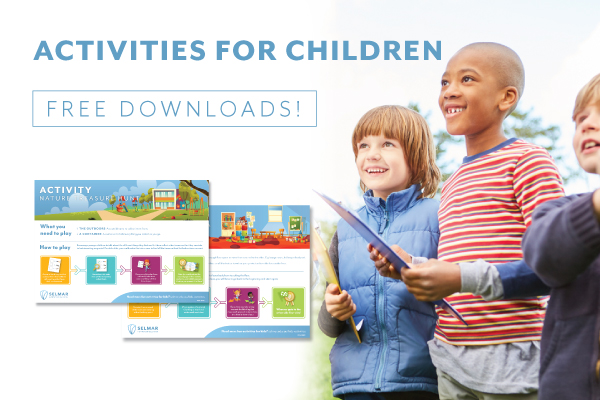Nursery rhymes have been a beloved part of childhood for generations. Many are simple, they’re often very catchy, and sometimes they can be seemingly nonsense. One thing’s for sure — nursery rhyme verses play a vital role in children’s development, fostering literacy, rhythm, memory, and vocabulary.
They can also contribute to nurturing strong bonds between educators, parents, and their little ones. We can all use nursery rhymes to provide a world of fun and imaginative learning, making them an integral part of early childhood education.

Key benefits of nursery rhymes for children
World Nursery Rhyme Week takes place from November 13 to 19, 2023, providing the ideal opportunity to get intentional about the role they play and the benefits they offer.
Let’s remind ourselves of some of the key ways nursery rhymes can boost children’s development and wellbeing in early childhood education settings.
Cognitive development and literacy
Nursery rhymes are more than just catchy earworms — they can also be an accessible gateway to literacy. The repetitive nature of rhymes guide children in recognising patterns and sounds, building a strong foundation for reading and writing. As children sing along, they also learn to associate words with their meanings, enhancing their comprehension skills too.
In addition, nursery rhymes can also support international learners with language acquisition, expanding vocabulary and helping it stick.
Rhythm and memory
The rhythmic nature of nursery rhymes makes them easier to remember, which can be captivating for young minds. This melodic element can support children in enhancing their memory and recall ability, paving the way for lifelong learning success.
Boost creativity
Children thrive on fun and nursery rhymes offer plenty of it for play-based learning settings. There’s no shortage of imaginative characters and whimsical tales in nursery rhymes to spark a sense of wonder, enriching a child’s world.

Maximising the positive impact of nursery rhymes in early childhood
As educators, there are many practical ways to make the most of the benefits of nursery rhymes.
Here are a few tips to help:
Puppet shows: With puppets to represent characters in different tales, you can bring the magic of nursery rhymes to life for children in early childhood education. You can even support children in making the puppets for additional creativity and engagement.
Performance fun: Acting out nursery rhymes can be a fun way of exploring stories and characters. Use props to set the scene, have fun with costumes and encourage children to play the role of their favourite characters.
Explore online resources: Leverage the digital age by exploring websites and apps that can offer a wide selection of nursery rhymes. Engaging animations and interactive features can provide dynamic ways to have fun in the world of nursery rhymes.
The power of nursery rhymes in early childhood education
Harnessing nursery rhymes in early childhood education can be a powerful tool for children’s development. Be inspired by World Nursery Rhyme Week and make a point of exploring nursery rhymes in your service. These age-old rhymes can have a special place in children’s hearts, while supporting them to grow and learn.
For more information about our courses or the sector, get in touch.



